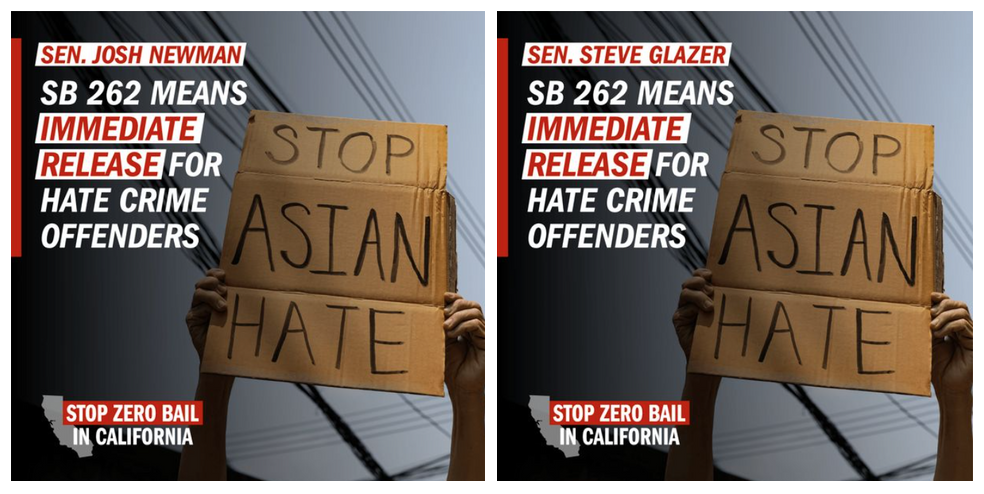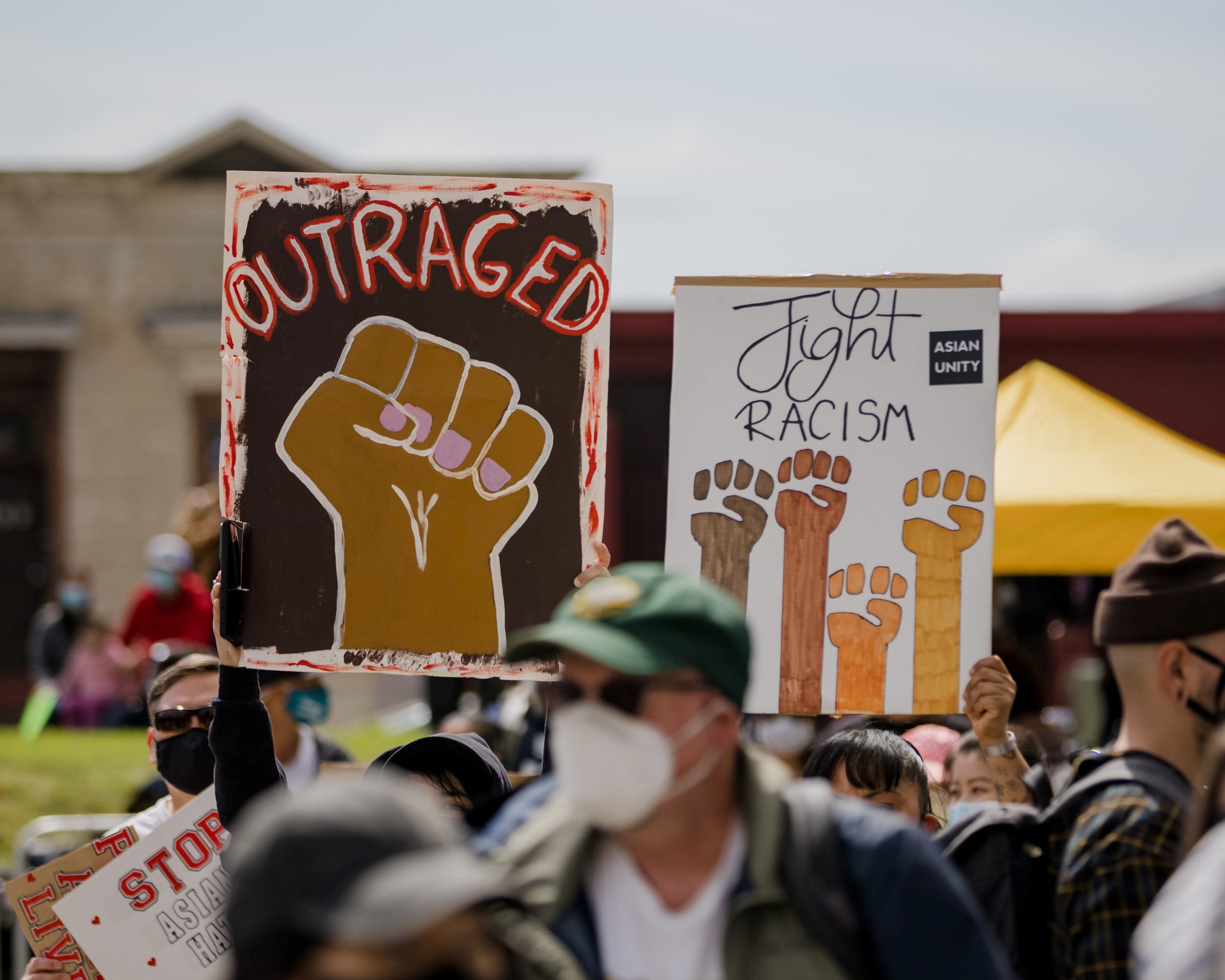Sign up here to receive The Yappie‘s weekly briefing on Asian American + Pacific Islander politics and support our work by making a donation.
After a surge in anti-Asian hate and violence, the response from the Asian American and Pacific Islander (AAPI) community has been clear: “We’re hurting. Hear us and see us.” But what comes next?
For the Ronin Project, a coalition of top political consultants formed in March, the answer is concrete political results—Democratic wins in upcoming congressional and gubernatorial elections, and investment in “sustainable political infrastructure” for the AAPI community.
AAPIs are the fastest-growing racial group in the U.S. and have made large gains in voter registration and participation in the last two decades. But the community is still oftentimes left out of the conversation when it comes to political power, and remains vastly underrepresented—AAPI officials make up just 0.9% of elected leaders in the U.S., despite AAPIs accounting for 6.1% of the population.
When Joe Biden won the presidency last year, experts pointed to record AAPI turnout as a winning factor. AAPIs overwhelmingly voted for Biden and delivered critical battleground states—the election marked the first time Georgia elected a Democratic presidential candidate in 30 years.
AAPIs also played a key role in the Senate runoffs, helping elect Georgia Democrats Raphael Warnock and John Ossoff to the Senate. Their wins ensured a slim but critical Democratic majority in the upper chamber.
After the elections—and the Atlanta shootings, which pushed anti-Asian racism into the national spotlight—philanthropic foundations and traditional Democratic donors are investing new money in the community. “For the first time they’re actually seeing Asian voters and their struggles as real struggles,” political consultant and Ronin Project founding member Linh Nguyen told The Yappie’s Shawna Chen and Andrew Peng. “There’s a lot of new power in this space.”
The Ronin Project’s goal is to harness this power and strengthen the pipeline of AAPI political involvement. Launched in March shortly after the Atlanta shootings, the group aims to “inspire stronger AAPI political participation and execute strategies that exact a high political or economic price from politicians or organizations that choose to weaponize anti-Asian rhetoric and anti-Asian sentiment for political or economic purposes,” per a Ronin Project statement.
Comprised of members from various professional backgrounds, the Ronin Project is comparable to the casino heist team from the movie “Ocean’s 11,” founder Bill Wong said. “Each one of us gets to design our heist, then we’ll work to see how we can fund each little op that we do,” he noted, bringing up polling and ad campaigns as two examples.
“We have to attack them where they’re the weakest and most vulnerable, and that has the largest amount of impact, so this is basically a guerrilla campaign,” Wong added.
The longtime political strategist has been in the arena for years and admitted a certain level of bitterness about AAPIs’ invisibility prior to the pandemic. “We never got in the game at the level that saved the Latino and the Black community, so we never really got the same respect,” Wong said.
COVID’s accompanying spike in anti-Asian racism, however, proved what he knew as someone who was bullied as a child. Pleas to stop the bullying never worked, he said—what did work was finding the bullies’ leaders and fighting back.
Wong’s approach to politics is cut from the same cloth. When rhetoric from leaders like former President Donald Trump contributes to the rise in anti-Asian hate, the opportunity to hit back lies in the same arena.
“We’re never going to be able to hurt Josh Hawley in Missouri, but a big deal for Kevin McCarthy is the [open] congressional seats in Orange County,” Wong says. The traditionally Republican county’s seven seats were swept by Democrats in 2018 before Republicans flipped two back in 2020, and will be up for re-election in 2022. “If we could take back those seats by driving Asian Americans away from the Republican Party, that will send a strong message to the Republican Party that their racist rhetoric doesn’t work.”


A key factor enabling electoral organizing is the availability of AAPI-centered resources, Nguyen said, something that didn’t exist before the pandemic. Working for Beto O’Rourke’s 2018 Senate run just three years ago, she had a “$0” budget to reach the state’s 700,000 registered AAPI voters. “[Georgia was], honest to god, the first time I’ve had a real budget to work with and a real team,” she says, referring to her work campaigning for the Georgia Democrats in the Senate runoffs last year.
Both Nguyen and Wong recognize the challenges that come with the work. Differences in awareness about AAPI issues within the community continue to pose challenges, and it’s exacerbated by the fact that more visible AAPI cultural leaders are not always equipped to speak on political issues. A celebrity might be vocal about extreme anti-Asian violence, but know less about state-sanctioned violence through the deportation of Cambodian Americans, for example.
Not all of this political division is organic: the GOP and other agents are quick to weaponize anti-Asian hate for their own purposes, Wong stresses. In California, a bill that would eliminate bail for non-serious offences has been a hot issue. A group opposing the legislation ran ads featuring “Stop Asian Hate” imagery and suggested that passage of the bill would lead to the release of hate crime perpetrators. It’s a deliberate effort to “pit communities against each other,” according to Wong.


That’s why it’s important to combat disinformation through language access and train community leaders to mobilize around political issues. But when it comes to racist or outdated views within the AAPI community—such as anti-Blackness and stances against affirmative action —Wong says it’s often “not worth it to chase those rabbit holes,” preferring to “keep blinders on and focus on organizing.”
What needs to happen above all is knowledge-sharing across the community. “Asians don’t acknowledge other Asians in the room,” Wong describes the status quo. Elected AAPI officials, political consultants, community organizations, media figures, and journalists each operate in their own silos—the Ronin Project’s current channel of communication with Rep. Judy Chu (D-California) and the Congressional Asian Pacific American Caucus is a kind of collaboration that didn’t happen before.
Ronins were masterless samurai in feudal Japan, expelled from a strict code of honor. It’s an intentional namesake that reflects the complexity of its members’ relationships with the AAPI community. “We’re all kind of hired guns, not your typical heroes … We're all kind of damaged in the political world,” Wong says, describing a fragmented community with conflicting values and perspectives.
At the end of the day, though, the problem is that AAPIs don't have enough seats at the table, and rectifying that gap is Wong’s focus.
“Semi-professional hobbyists need not apply to the Ronin Project,” he remembers sending in an early email. The Ronin Project isn’t pacifist: it’s here to empower the AAPI community to deal real blows in the arena of mainstream politics.









